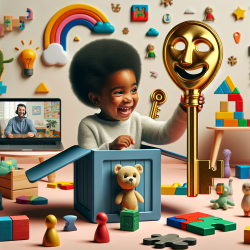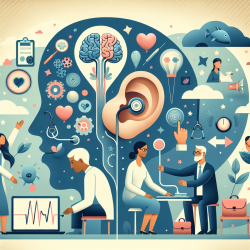Understanding the Connection Between Humor and Personality
Humor is a multifaceted tool that can significantly influence social interactions and personal well-being. For practitioners in speech-language pathology, understanding the nuances of humor styles can be crucial in shaping effective therapeutic interventions. A recent study titled The Dark Side of Humor: DSM-5 Pathological Personality Traits and Humor Styles explores the intricate relationship between humor styles and pathological personality traits. The findings of this research provide valuable insights that can be applied to improve therapeutic outcomes for children.
The Four Humor Styles
The study categorizes humor into four distinct styles: affiliative, self-enhancing, aggressive, and self-defeating. Each style has unique characteristics and implications:
- Affiliative Humor: This style involves using humor to enhance relationships, often characterized by witty banter and humorous anecdotes. It's associated with positive interpersonal interactions and psychological well-being.
- Self-Enhancing Humor: This style is used as a coping mechanism, helping individuals maintain a positive outlook even in stressful situations. It's linked to resilience and emotional stability.
- Aggressive Humor: Often injurious, this style involves using humor to put others down, potentially harming relationships. It's associated with antagonistic personality traits.
- Self-Defeating Humor: This involves self-disparaging humor, used to ingratiate oneself with others. It's linked to negative psychological outcomes and poor social support.
Implications for Practitioners
For practitioners working with children, understanding these humor styles can be transformative. The study found that benign humor styles (affiliative and self-enhancing) are positively correlated with psychological well-being, while injurious styles (aggressive and self-defeating) are linked to negative outcomes. Here's how practitioners can leverage these insights:
- Encourage Positive Humor: Foster an environment where affiliative and self-enhancing humor is encouraged. This can help children build stronger social bonds and develop resilience.
- Identify Negative Patterns: Be vigilant about signs of aggressive or self-defeating humor. These may indicate underlying issues that need to be addressed in therapy.
- Personalized Interventions: Tailor interventions to individual needs, considering the child's humor style and personality traits. This personalized approach can enhance therapeutic effectiveness.
Encouraging Further Research
While the study provides a robust framework, further research is needed to explore the causal relationships between humor styles and personality traits. Practitioners are encouraged to delve deeper into this area, contributing to a more nuanced understanding of how humor can be harnessed to improve therapeutic outcomes.
By integrating these findings into practice, speech-language pathologists can not only enhance their therapeutic interventions but also contribute to the overall well-being of the children they serve. For those interested in exploring the original research paper, please follow this link: The Dark Side of Humor: DSM-5 Pathological Personality Traits and Humor Styles.










